Entries Tagged 'Books' ↓
October 9th, 2009 — Books, Entertainment, NONFICTION, Radio

The awesome success of TV magnate Oprah Gail Winfrey—estimates put her income somewhere in the area of $1 million a day—suggests that limits for women in entertainment are astoundingly high.
But where should you start, if you hope to have a real and prosperous career in the field? In her new book, Put Your Dreams First: Handle Your [entertainment] Business: Industry Secrets for Your Success, industry veteran Thembisa Mshaka discusses how career goals can be best met by an application of smarts, hard work, respect, and “going the extra mile.”
Thembisa Mshaka is the guest today on my WBAI-NY / 99.5 FM radio show, NONFICTION, this afternoon, Friday, October 9th, at 2 pm ET.
Then, I was probably just as shocked as you were to hear this morning that President Barack Obama had been awarded the Nobel Peace Prize.
What do you think about the honor, and what does it mean? We’ll be taking calls from our listeners, during the second half of the broadcast, about the stunning news.
You can hear Ms. Mshaka’s and our listener’s ideas by tuning in at 2 pm. If you’re outside of the New York tri-state, check out our stream on the web. If you miss the live show, dig into our archives for up to 90 days after broadcast.
October 2nd, 2009 — Books, Business, Controversy, Entertainment, History, Internet, Media, Music, NONFICTION, Pop Culture, Radio, Technology, Youth
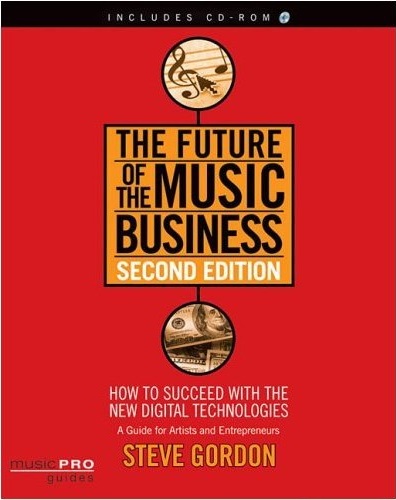
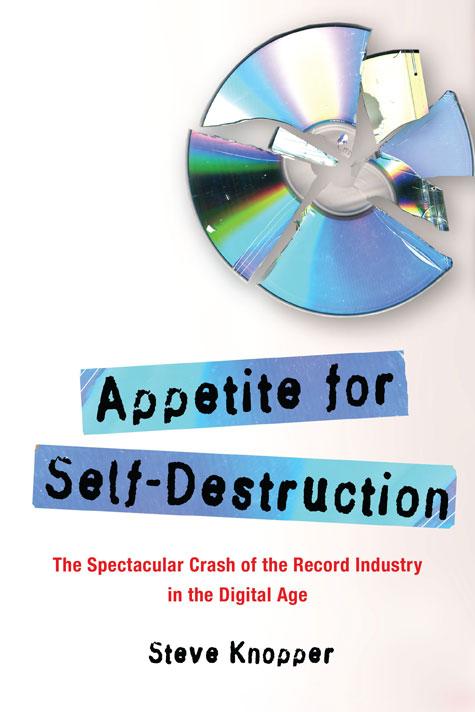
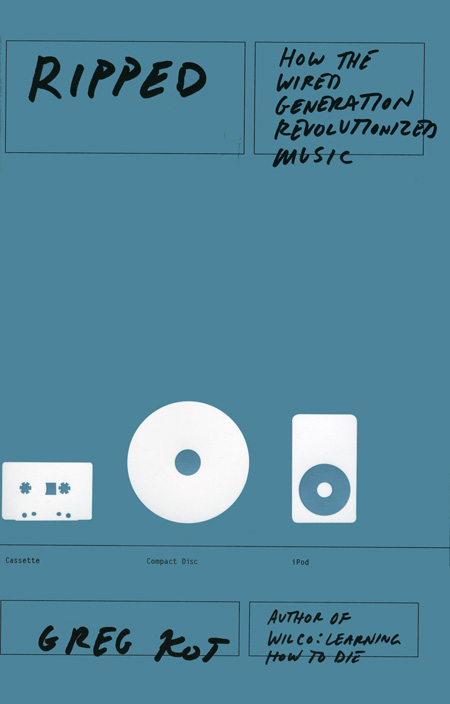
When 19-year-old computer geek Shawn Fanning created and released Napster, his internet file-sharing application, 10 years ago, he had no idea that his little experiment would completely overturn the massive, multi-billion music business. He just wanted a way to share digital music with friends. But what started as an experiment by a bored college student quickly became the loose bolt that would yank the industry from its rapidly rotating axle.
Fanning and Napster were quickly lambasted by many, hailed as heroes by many more. But their story is only a small part of what Chicago Tribune music critic Greg Kot, in his new book, Ripped: How the Wired Generation Revolutionized Music, above, calls “the laptop generation”:
An uprising led by bands and fans networking on the Internet. Ripped tells the story of how the laptop generation created a new grassroots music industry, with the fans and bands rather than the corporations in charge.
Those businesses fell apart not only because the technology made change irresistible, but also because, for years, the business refused to come to grips with what was happening to their field. That’s the subject of Rolling Stone contributing editor Steve Knopper‘s text, Appetite for Self-Destruction: The Rise and Fall of the Record Industry in the Digital Age, above middle. In Knopper’s opinion,
after the incredible wealth and excess of the ’80s and ’90s, Sony,
Warner, and the other big players brought about their own downfall
through years of denial and bad decisions in the face of dramatic
advances in technology.
Greg Kot and Steve Knopper are guests today on my WBAI-NY / 99.5 FM radio show, NONFICTION, this afternoon, Friday, October 2, at 2 pm ET.
But they’re talking about how we got here. What should an artist do, in today’s realm, to manage a career in the digital age? Attorney Steve Gordon‘s book, The Future of the Music Business: How to Succeed with the New Digital Technologies, above top, is designed as a guide for the artist / entrepreneur who wants to take control of their career. It
provides a legal and business roadmap to artists, music industry professionals, entrepreneurs and attorneys. It focuses on the rules pertaining to the music business and the new digital music industry, how artists and entrepreneurs can use the new technologies to succeed, new business models, plus interviews with artists and entrepreneurs who are inventing the future of the music business.
You can hear Kot’s, Knopper’s, and Gordon’s ideas by tuning in at 2 pm. If you’re outside of the New York tri-state, check out our stream on the web. If you miss the live show, dig into our archives for up to 90 days after broadcast.
September 18th, 2009 — Books, NONFICTION, Science

Dr. Leonard Susskind is widely regarded as one of the fathers of string theory. The field’s objectives consist of nothing less than a re-ordering of the universe, and a mapping of its very structure, far, far past the atomic level. In his book, The Cosmic Landscape: String Theory and the Illusion of Intelligent Design, Dr. Susskind illuminates the challenges of his research, the discoveries, and the work still to be done.
Dr. Susskind is the guest today on this previously broadcasted edition of my WBAI-NY / 99.5 FM radio show, NONFICTION, this afternoon, Friday, September 18, at 2 pm ET. You can hear his ideas by tuning in at 2 pm. If you’re outside of the New York tri-state, check out our stream on the web. If you miss the live show, dig into our archives for up to 90 days after broadcast.
September 4th, 2009 — Books, Money, NONFICTION, Work

The most interesting fact about a crappy economy is that it often compels people to finally take chances on long-cherished job dreams. In other words, once it becomes clear that, work-wise, nothing is promised, many people figure, “Why not? What have I got to lose?”
How do you make the leap, though?
Pamela Skillings was in an occupation she describes as “soul-draining.” As she told The New York Times last year,
Eventually, I realized that my salary wasn’t worth the emotional price I was paying for it. My compensation package was standing in the way of true success, which for me meant doing work that was meaningful and made me happy.
Pamela Skillings is a communications consultant who blogs on how to get out from under the corporate grind. She’s also author of the book, Escape from Corporate America: A Practical Guide to Creating the Career of Your Dreams.
Pamela’s the guest, today, in this repeat edition of my WBAI-NY / 99.5 FM radio show, NONFICTION, this afternoon, Friday, September 5, 2 pm ET.
You can hear her talk about how she made her great escape by tuning in at 2 pm. If you’re outside of the New York tri-state, check out our stream on the web. If you miss the live show, dig into our archives for up to 90 days after broadcast.
August 28th, 2009 — Architecture, Books, Design, NONFICTION, Technology

In the book, From Control to Design: Parametric / Algorithmic Architecture, thinkers and practitioners look at the way today’s most aggressive and innovative firms are using computation to make the art of creating space a wholly new and radical venture.
This 26-foot-high, 69-foot-long, 17-ton aluminum sculpture, above, “The Morning Line,” by artist Matthew Ritchie, architects Aranda/Lasch and civil engineers Arup AGU, typifies the kinds of complex structures, and constructions, with which creatives are now playing. As the book reasons, the types of innovation possible are only increasing exponentially.
If the first generation of digital modeling programs allowed designers to conceive new forms and processes, a new breed of digital techniques is being discussed to control and realize these forms. How are these techniques affecting architectural practice and what potentials do they offer?
Architect Irene Hwang, one of From Control to Design‘s editors, is the guest today on my WBAI-NY / 99.5 FM radio show, NONFICTION, this afternoon, Friday, August 28, at 2 pm ET.
You can hear her ideas by tuning in at 2 pm. If you’re outside of the New York tri-state, check out our stream on the web. If you miss the live show, dig into our archives for up to 90 days after broadcast.
July 31st, 2009 — Art, Black Music, Books, Education, NONFICTION, Race

Yolande Cornelia “Nikki” Giovanni is not just one of the world’s greatest poets, with a legacy of profound and funky work, but a scholar with deep community interests and focuses. As a Distinguished Professor of English at Virginia Tech in Blacksburg VA since 1987, she trains future leaders in the literature of the mother tongue. As the author of over 30 books, she shares the beauty of poetic language with readers far and wide, having done so for over four decades. The above photo is drawn from the session for her first volume of work, Black Feeling, Black Talk, published in 1968, the year she turned twenty-five.
 Unlike many poets, however, Giovanni, right, has long had an interest in reaching children. Her first book of verse for them, Spin a Soft Black Song, was published a mere three years after her first volume, in 1971, two short years after giving birth to her only child, Thomas Watson Giovanni.
Unlike many poets, however, Giovanni, right, has long had an interest in reaching children. Her first book of verse for them, Spin a Soft Black Song, was published a mere three years after her first volume, in 1971, two short years after giving birth to her only child, Thomas Watson Giovanni.
Her latest work, which she edited, continues her aim of making poetry come alive for young listeners and readers, albeit in a contemporary way. Hip-Hop Speaks to Children: A Celebration of Poetry with a Beat presents compositions by rap artists like A Tribe Called Quest, Queen Latifah, the Sugarhill Gang, and Stetsasonic along with classics by Claude McKay, Sterling Brown, Maya Angelou, and, of course, Nikki Giovanni. Children can read along in the profusely illustrated text while an accompanying CD presents most of the pieces in audio form, some of them read by the original poet. For me, the highlight had to be hearing Langston Hughes, performing his own poems, like “Dream Boogie” and “The Negro Speaks of Rivers.”
 Nikki Giovanni has had a long and varied career, appropriately honored with accolades from admirers as diverse as TV host Oprah Winfrey, whose hailed her as one of twenty-five “Living Legends”; to singer Teena Marie, who name-checked Giovanni on her 1981 hit, “Square Biz”; to biologist Robert Baker who, in 2004—no joke—named a West Ecuadoran bat he discovered, three years earlier, after her. Micronycteris giovanniae, which means meaning “Giovanni’s small night flyer,”looks much like the cuddly fellow above. “I enjoy reading her poetry and I come from the Deep South, so I really can appreciate what she has done for race relations and equality,” the professor explains.
Nikki Giovanni has had a long and varied career, appropriately honored with accolades from admirers as diverse as TV host Oprah Winfrey, whose hailed her as one of twenty-five “Living Legends”; to singer Teena Marie, who name-checked Giovanni on her 1981 hit, “Square Biz”; to biologist Robert Baker who, in 2004—no joke—named a West Ecuadoran bat he discovered, three years earlier, after her. Micronycteris giovanniae, which means meaning “Giovanni’s small night flyer,”looks much like the cuddly fellow above. “I enjoy reading her poetry and I come from the Deep South, so I really can appreciate what she has done for race relations and equality,” the professor explains.
Nikki Giovanni is the guest today on my WBAI-NY / 99.5 FM radio show, NONFICTION, this afternoon, Friday, July 31st, at 2 pm ET.
You can hear her ideas by tuning in at 2 pm. If you’re outside of the New York tri-state, check out our stream on the web. If you miss the live show, dig into our archives for up to 90 days after broadcast.
July 10th, 2009 — Books, Internet, Language, NONFICTION

Would you believe anything he told you about the car you were buying from him, about your future with the company, or about you?
Probably not. But why? And, even more, when you speak, do people see you the same way? That is, do you, even unintentionally, convey that you are not to be liked or believed?
In his new book, Trust Me: Four Steps to Authenticity and Charisma, Nick Morgan, PhD., a top communication and speech coach, author, and blogger, delivers the critical knowledge on how “to be an effective speaker by presenting an image of authenticity and respect for [an] audience, whether in a group presentation or a one-on-one conversation.”
Undergirding his approach is
the fact that when words and body language are in conflict, body language wins every time. This isn’t easy to overcome, because normally body language is immediate, while the words lag slightly behind, and even a momentary conflict is perceptible to the audience. The key to success is to train your body language to unconsciously align with your message.
Nick Morgan is a guest today on my WBAI-NY / 99.5 FM radio show, NONFICTION, this afternoon, Friday, July 10, at 2 pm ET.
 Then, we’ll announce the three winners of O’Reilly Media founder Tim O’Reilly and Sarah Milstein’s new volume, The Twitter Book, right. Sarah was our guest last week on NONFICTION, and an amazing, informed—and generous!—guest.
Then, we’ll announce the three winners of O’Reilly Media founder Tim O’Reilly and Sarah Milstein’s new volume, The Twitter Book, right. Sarah was our guest last week on NONFICTION, and an amazing, informed—and generous!—guest.
Then, finally, our long-delayed conversation with Ellen Lupton, director of the Graphic Design MFA program at Maryland Institute College of Art (MICA) in Baltimore, and author of the new book, Indie Publishing: How to Design and Produce Your Own Book, a step-by-step guide to being your own publisher. “Once referred to derisively as ‘vanity publishing,'” she says, “self-published books are finally taking their place alongside more accepted indie categories such as music, film, and theater.”
You can hear Nick Morgan’s and Ellen Lupton’s ideas by tuning in at 2 pm. If you’re outside of the New York tri-state, check out our stream on the web. If you miss the live show, dig into our archives for up to 90 days after broadcast.
June 12th, 2009 — Books, NONFICTION, Science

Everybody knows that the universe is big, and everybody knows that it was here long before there were people.
But is the universe alive?
By this, I don’t mean in the sense that, say, freedom can be alive, or the way an ocean can be alive because it’s filled with living things.
I mean, is the universe, itself, alive? To put it roughly, is the universe somewhat akin to a big animal?
Continue reading →
June 11th, 2009 — Books, Humor

And what’s that in the bowl, with the chunks? These are some of the questions any reasonable person would ask, especially after reading some of these other Insane Book Titles in this collection. Cozy up to such classics as Castration: The Advantages and the Disadvantages, The 2009-2014 World Outlook for 60-Milligram Containers of Fromage Frais, and Games You Can Play With Your Pussy. It gets no better, friends.
Yes, it does. Here are even more insane titles.
May 8th, 2009 — Books, Business, Design
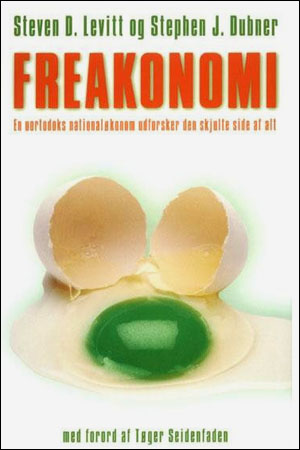
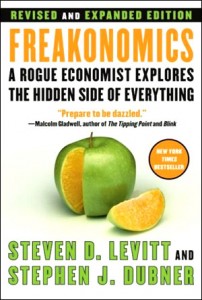 Apparently, the Danish didn’t want to go with the U.S.’s apples-and-oranges cover graphic, right, when they published their cracked yolk version, above, of economist Steven Levitt’s and journalist Stephen J. Dubner’s 2005 smash, Freakonomics: A Rogue Economist Explores the Hidden Side of Everything.
Apparently, the Danish didn’t want to go with the U.S.’s apples-and-oranges cover graphic, right, when they published their cracked yolk version, above, of economist Steven Levitt’s and journalist Stephen J. Dubner’s 2005 smash, Freakonomics: A Rogue Economist Explores the Hidden Side of Everything.
Levitt and Dubner’s treatise on the economics of drug dealing, sumo wrestler cheating, and the effects of abortion on crime has sold over 3 million copies to-date. That kind of worldwide success, you think, would move other countries to tow the line, stay with what works, and, from the look of these other versions, most did. Not the Danes, though…or the British, for that matter, who avoided foodstuffs altogether for both the hardcover and paperback versions of the book.
Why? Hopefully Levitt/Dubner will explain it in their upcoming text, SuperFreakonomics. I kid you not.









 Nikki Giovanni has had a long and varied career, appropriately honored with accolades from admirers as diverse as TV host Oprah Winfrey, whose hailed her as one of
Nikki Giovanni has had a long and varied career, appropriately honored with accolades from admirers as diverse as TV host Oprah Winfrey, whose hailed her as one of 




 Apparently, the Danish didn’t want to go with the U.S.’s apples-and-oranges cover graphic, right, when they published
Apparently, the Danish didn’t want to go with the U.S.’s apples-and-oranges cover graphic, right, when they published 